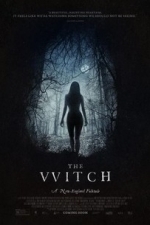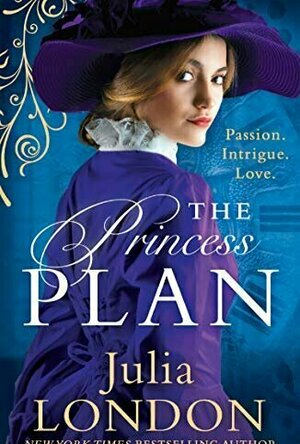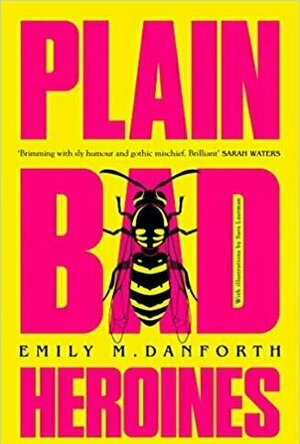
Paytm Mall : Online Shopping
Shopping and Lifestyle
App
Paytm Mall is India’s premier online shopping app - brought to you by Paytm, India’s most...

Warhammer 40,000: Freeblade
Games and Stickers
App
App Store ‘Best of 2015’ Awards Winner TAKE COMMAND OF A WARHAMMER 40,000 IMPERIAL KNIGHT IN...

RH Medical Labs - Normal labs, now with Pediatric and Pregnancy labs in your pocket!
Medical and Health & Fitness
App
• RH Medical Labs is the best rated app, featured in the top stores in 67 countries! • We...
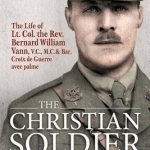
The Christian Soldier: The Life of Lt. Col. Bernard William Vann, V.C., M.C. and Bar, Croix De Guerre Avec Palmes
Book
Lieutenant Colonel the Rev Bernard William Vann, VC, MC & Bar, Croix de Guerre avec palme, was one...
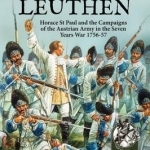
Lobositz to Leuthen: Horace St Paul and the Seven Years War, 1756-1757
Book
In 1751, at the age of 22 and then a law student, Horace St Paul had, as he described it, "a...
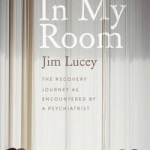
In My Room: The Human Journey as Encountered by a Psychiatrist
Book
'The room is a space for the mind, and a metaphor for the mind at the same time. Most of us will...
Sean Freese (4 KP) rated The Witch (2015) in Movies
Jun 25, 2020
The full title is, The Witch: A New England Folktale. Like Grimm’s fairytales, American folklore has taken revisions over the centuries to become a palatable collection of juvenile life lessons. Anyone who has read the original versions of these stories knows how brutal, horrifying, and far removed they are from our current values. As much as I would not condone reading original classic witch tales to a small child, they do contain much deeper implications and ideas than the simple “Don’t tell lies” that are gleaned from modern revisions. What’s fascinating about The Witch is how familiar the setting and story is, without a single cliché or moment of prediction to speak of. The evil that was feared in 17th Century Puritan America has been so eclipsed by the human horrors of The Salem Witch Trials, that we have forgotten what it was to fear a witch.
We know these characters only by their Christian names. William removes his family from their Colonial settlement due to an incompatibility of faith. The colony of Puritans isn’t Christian enough. With his wife, Katherine, William takes his 4 children into the wilds of the Northeast. Airs of The Crucible envelope the setting. Common pronouns are replaced with “thines” and “thous”. Dialogue is delivered as if quoted from Shakespeare or the Bible itself. In the past, this oral dynamic has always sounded ardently rehearsed. Somehow, it’s natural here. Considering William’s rigorous faith, you might expect him to be an overbearingly shrewd father. He is in fact a loving and good man of his time; often a pushover. Katherine is the more fearsome parent, with a shrill voice and gaunt pointed face. While they do live in hardship, this is a good family. Once Fall deadens the colors and greys the skies, things begin to take a disturbing turn.
Ralph Ineson and Kate Dickie play the parents without an exaggeration of the material. Remarkable still are the actors portraying their children. Harvey Scrimshaw plays William’s 10-year-old son, Caleb, as natural as can be imagined. The dramatic beats of a horror movie come with taxing climactic moments and Scrimshaw acts beyond his years. Anya Taylor-Joy plays the eldest daughter Thomasin; a doe-eyed blonde beauty who plays the most relatable character of the flock. The dynamic between Caleb and Thompsin has notes of innocent sexual tension. Their secluded life leaves a great deal of new feelings that can’t be addressed due to their customs. These feelings lead to foreign temptations that are preyed upon by the timeless evil beyond the trees.
The greatest achievement of this film is how faithful it is to its setting and story, while keeping enough behind the veil to become engrossing. The tale feels as old as any, drawing from universal fears and motivations. How it draws you in, keeping you tied to the victims and their perspective while keeping the evil at arm’s length, shows a discipline of craft that greatly compliments the material. Much like vampires, witches have been trivialized and diluted by film into something superficially attractive and entertainingly evil. As with Noseferatu, seeing a witch living a damnable existence of ugliness is much more appropriate. If they’re ever beautiful, they won’t be for long.
Gareth von Kallenbach (980 KP) rated Jungle Cruise (2021) in Movies
Jul 28, 2021
Since attractions ranging from “Pirates of the Caribbean”, “The Haunted Mansion” and “The Tower of Terror” have made their way to screens along with others over the years; it was not much of a shock to hear that The Jungle Cruise was next in line to make the leap to the big screen. Despite several release date changes and then a lengthy delay due to Covid; the film has finally arrived backed by a star-studded premiere at Disneyland.
When Doctor Lilly Houghton (Emily Blunt) with the help of her high-maintenance brother MacGregor (Jack Whitehall) desire to find a mythical item and gain entry into a prestigious organization; they are hampered by the sexist views of early 1900 England and forced to steal an artifact and race to the Amazon.
With a dangerous foreigner; Prince Joachim Jesse Plemons and his goons in hot pursuit, Lilly and her brother find themselves in the company of a boat captain named Frank (Dwayne Johnson); who in dire need of money uses all sorts of methods to gain a charter and take Lilly and her brother into a dangerous area.
Along the way, all manner of humor, action, and dangers arise as everything from hostile natives, animals, rapids, and of course, The Prince stands in their way. If this was not bad enough; there is also a matter of a curse that must be factored in which presents an even bigger danger than before.
In a race against time, Frank and Lilly must learn to trust and work with one another and decipher the clues to save the day and keep the forces of evil from winning.
The film takes a bit of time to get going as while there is some action and great scenery and sets; early on it does seem to be unsure of what type of film it wants to be and what type of story it wants to tell.
Is it a madcap adventure with a dash of romance? Is it an FX-laden action spoof? Perhaps it is an over-the-top action film that recalls the fabled cinematic adventures of old?
In reality, the film is a combination of all of the above. I had flashes of “The African Queen”, “Romancing the Stone”, “Raiders of the Lost Ark”, “Pirates of The Caribbean”, and “The Mummy” during the film.
While the MacGuffin element of the film may be a bit confusing for some with more questions than answers; Blunt and Johnson work very well with one another and Whitehall provides a wider element to his character making him more than the comic relief in the film.
The FX are very enjoyable and the film mixes the humor with the action well including some of the best jokes from the attraction.
While it may at first glance be considered just a routine adventure film; the movie blends a strong and enjoyable cast with a fun adventure that recalls the thrilling cinematic tales of old but does so with a fresh and modern twist.
4 stars out of 5
Ivana A. | Diary of Difference (1171 KP) rated The Princess Plan (A Royal Wedding, Book 1) in Books
Oct 5, 2020
<a href="https://diaryofdifference.com/">Blog</a>; | <a href="https://www.facebook.com/diaryofdifference/">Facebook</a>; | <a href="https://twitter.com/DiaryDifference">Twitter</a>; | <a href="https://www.instagram.com/diaryofdifference/">Instagram</a>; | <a
<a href="https://ko-fi.com/diaryofdifference">Ko-fi</a>;
#1 <a href="https://www.goodreads.com/review/show/3099410597">The Princess Plan</a> - ★★★
#2 <a href="https://www.goodreads.com/review/show/3361072334">A Royal Kiss and Tell</a> - TBR
<img src="https://i0.wp.com/diaryofdifference.com/wp-content/uploads/2020/09/Book-Review-Banner-85.png?resize=768%2C432&ssl=1"/>;
I received The Princess Plan by Julia London from the amazing team at Mills & Boon. This is the first book in the series A Royal Wedding.
Historical romances are a hit or miss for me, and this one didn’t really hit the mark like I wanted it to. Prince Sebastian of Alucia is on his visit in London, when his personal secretary is murdered.
And a murder such as this one creates a very big buzz in London’s high society. When a scandal like this occurs, it’s all anyone talks about, including Eliza Trickelbank, who happens to own a gossip gazette.
When her gazette receives an anonymous tip off about this crime, Prince Sebastian has no choice, but to work with her in order to solve the mystery of his friend’s murder.
With a trade deal on the line and a pressure to find a noble bride, there is nothing more dangerous than a prince socialising with a commoner. They can’t seem to agree on anything, and find each other frustrating, but the temptation between them becomes harder and harder to be ignored.
<b><i>My Thoughts:</i></b>
I loved the Cinderella vibe around this book, and the trope of prince meets commoner. I also enjoyed the trope of enemies becoming lovers. Even though, in this case, it was more of a forbidden temptation meets annoyance that turns into affection.
I liked Sebastian as much as I disliked Eliza. Everything that annoyed me about her, he somehow managed to compensate for. She was trying very hard to be independent, but instead, she gave up a vibe that was almost unbearable and very insecure. With Sebastian I loved the dilemma between country vs heart, which I assume many nobles, especially during that time in England felt. I am sure that many of them sacrificed their love just to do right by their country.
I found the gazette excerpts quite funny at times, and very enlightening. They take you into a whole new world, where you feel as if you’re there, getting ready for a ball, or reading about the latest gossip of the nobles. The writing style matches the time setting perfectly. I think Julia London did an amazing job when it comes to that. Here is an excerpt that really made me giggle:
<b><i>“New information suggests that if a lady wishes to enjoy a romp without consequence, trotting a horse briskly the day after the romp should remove said consequence.”</i></b>
To conclude, I enjoyed The Princess Plan, but it wasn’t a favorite. The writing was beautiful and I am sure this will be a favorite for people that love historical romances. The only reason I didn’t love it is because of Eliza’s character and the tropes that I have already seen before.
Kristy H (1252 KP) rated Plain Bad Heroines in Books
Dec 17, 2020
The story centers around two time periods. The first, 1902, at the Brookhants School for Girls, run by Libbie Brookhants. A book by a young writer, Mary MacLane has come out--one that's incredibly scandalous for the times. Two Brookhants girls, Flo and Clara, are obsessed with it and establish The Plain Bad Heroine Society. The two are in love, meeting in secret--until they are attacked by yellow jackets at their hiding spot, a copy of the book found with them. A few years later the school closes, but not until after more scandal and death. Now, our second period, over a hundred years later, where Merritt Emmons, a young writer, publishes a book about Flo and Clara's story. It inspires a horror film starring Harper Harper, a famous lesbian actress. Harper will be playing Flo and B-list actress Audrey Wells, Clara. Filming on-site at the abandoned Brookhants site, the three women converge. But soon, weird things start happening, and the curse of Brookhants seems back to haunt the set--and our three modern-day heroines.
This book is absolutely enthralling at times. I flew through these 619 pages, that's for sure. My notes state "very lesbian," which is, of course, a major plus for me. Believe me, we don't get a lot of books starring ourselves. And you know, where we are killed off by swarms of yellow jackets. I honestly found both storylines compelling. It's hard not to fall a bit in love with Harper Harper, the charismatic celebrity (out!) lesbian. And 1902 isn't just about Clara and Flo, but Libbie Brookhants and her life trying to run a cursed school in the early 1900s. Honestly, the pages really flew by most of the time. Though, there are certainly moments where I felt some of the story could have been cut.
And yes, the narrative style is different, though it really adds to the uniqueness of the book. It's basically told by an omnipresent narrator, talking directly to the reader. There are footnotes, often humorous ones, and the end result is something you don't often find. For the most part, I felt like Danforth pulled it off, too. I do think Libbie was a little more fully developed than Merritt, Harper, and Audrey, but that also may have been because that trio could come across as a bit spoiled at times.
Probably my two biggest issues with this book (regretfully): for a Gothic horror novel, it's not really that scary. There are a few creepy and eerie moments, especially in the beginning, but it never really builds up to that terrifying moment that you're expecting. And, somewhat related, the ending. We read and stick with our various tales for the entire time and then... poof! Everything just fizzles out. I was so bummed. The ending was such a disappointment after all I'd read and kept this from being a full-fledged 4 or 4.5-star read. I couldn't believe it after what we'd been through. It was like even the author was tired.
So, overall, this is an original and fascinating read. I'm certainly still advising you to read it (especially if you're queer or enjoy reading queer fiction). Just be prepared that the ending may not have that big scary moment you're expecting. 3.5 stars.
